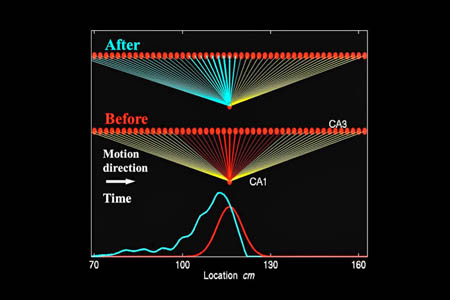
Space, Time & Imagination: How Virtual Reality Changes the Brain
View Mayank Mehta's TEDx talk: It turns out we can shut off the parts of our brain that maps our world -- using technologies including Virtual Reality. What might we learn about how we perceive space and time, and brain health along the way?
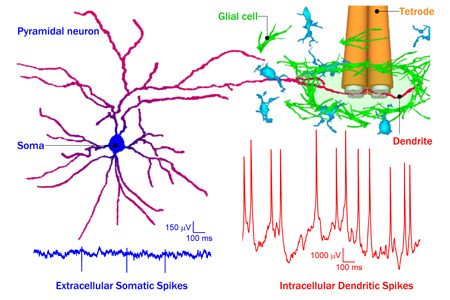
Neurons 10 times more active than previously measured
Neurons are made of a small body or soma, but extensive, tree like structures called dendrites. We measured the electrical activity of dendrites in freely behaving subjects for the first time and found that dendrites generate nearly ten times as many spikes as the cell body.
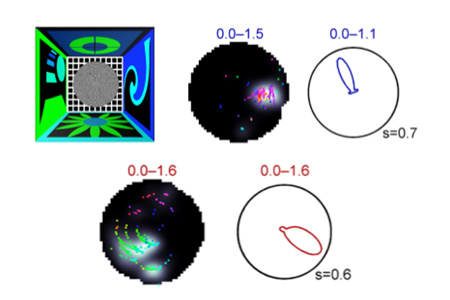
How does vision influence memory neurons?
Neurons in a part of the brain called the hippocampus are crucial for learning and memory but the underlying mechanisms are not fully understood. Our study addressed this by demonstrating a causal and surprisingly direct influence of visual cues on these neurons' activity.

How neurons react to virtual reality
Virtual reality is becoming an increasingly popular technique for many purposes, but how individual neurons react when the subjects explore virtual reality is unknown. We made these measurements and found surprising results

How neurons make maps of space
A wide range of environmental stimuli and brain rhythms, generate precise mental maps of space. The mechanism by which this happens remain to be understood. A noninvasive virtual reality system reveals that there are multiple neural maps of space that compete with each other.

Memory and the brain
Our research has focused on computational and experimental investigations of learning and memory, seeking to understand how the brain learns and remembers how to navigate unfamiliar environments, research aimed at paving the way to better understanding mechanisms of learning and memory in neural networks.
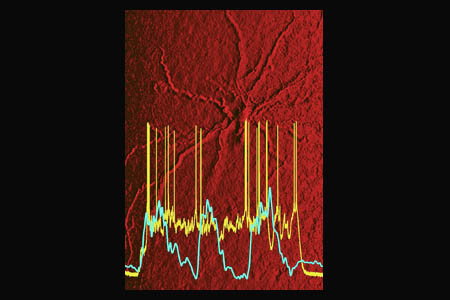
Memory related brain activity during sleep
UCLA researchers have for the first time measured the activity of a brain region known to be involved in learning, memory and Alzheimer's disease during sleep. They discovered that this region, called the entorhinal cortex, behaves as if it is remembering something, even during anesthesia-induced sleep.
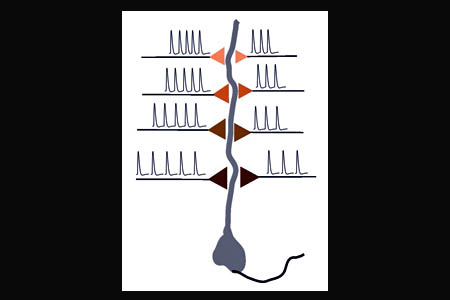
How the brain makes memories
In a discovery that challenges conventional wisdom on the brain mechanisms of learning, UCLA neuro-physicists have found there is an optimal brain "rhythm," or frequency, for changing synaptic strength. And further, like stations on a radio dial, each synapse is tuned to a different optimal frequency for learning.
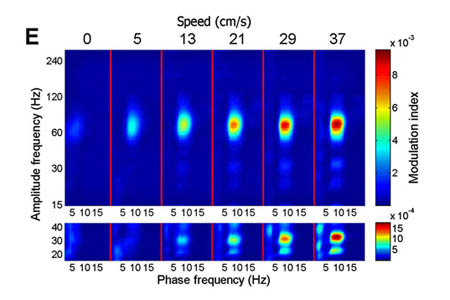
How running improves brain rhythms
Rhythms in the brain that are associated with learning become stronger as the body moves faster. Our research team found that the strength of the gamma rhythm grew substantially as running speed increased, bringing scientists a step closer to understanding the brain functions essential for learning and navigation.

Memory reorganization during sleep
Memories are stored in both the neocortex and the hippocampus. Then, during sleep, the hippocampus, acting as a temporary storage system, is cleared for another day of learning, while the memories are retained in the neocortex, which provides permanent storage much like a computer hard disk.
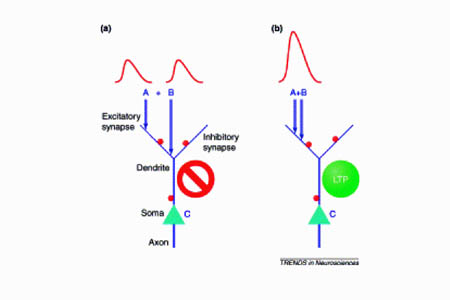
How neuronal dendrites influence learning
Neurons are tree-like cells with connections between neurons made on branch-like processes called dendrites. A novel, biophysical 'Hebbian' learning rule is proposed that explains the dendritic contribution to learning.
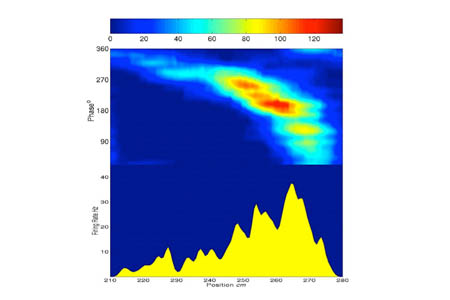
How neural rhythms facilitate learning
Neuronal communication is crucial for learning and this requires high temporal precision. A mechanism is proposed where brain rhythms make neuronal communication more precise and facilitate learning.
